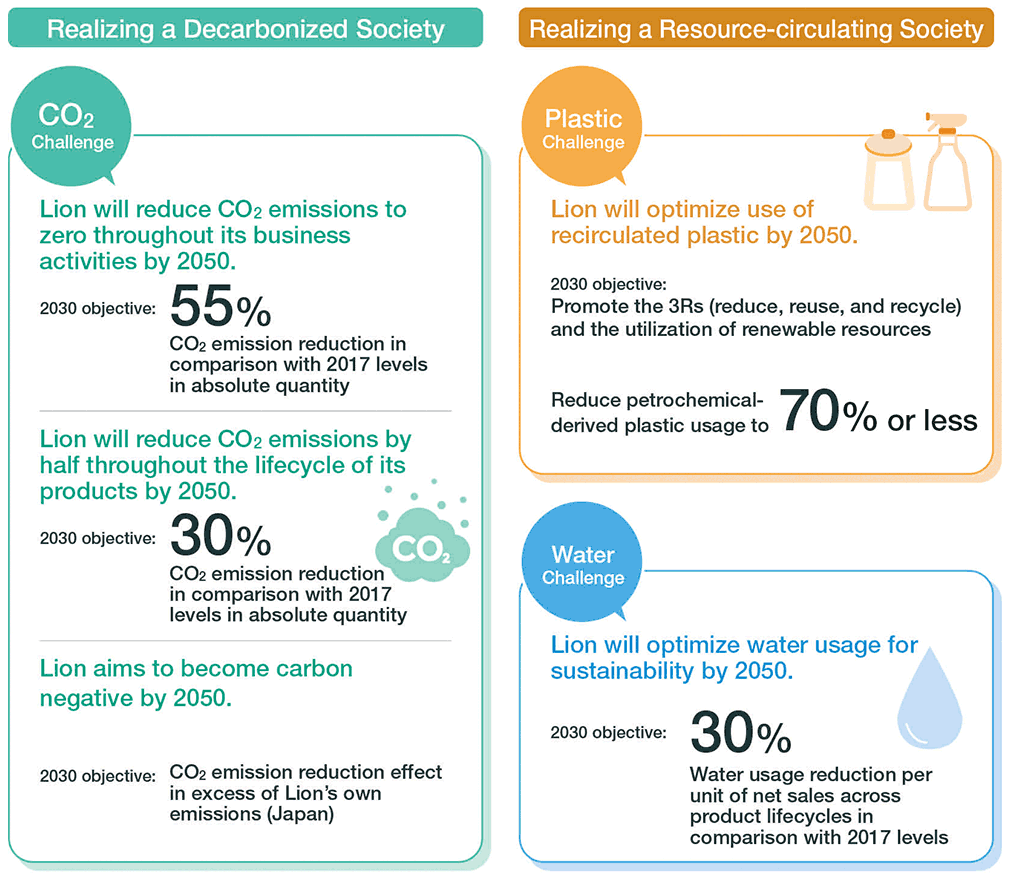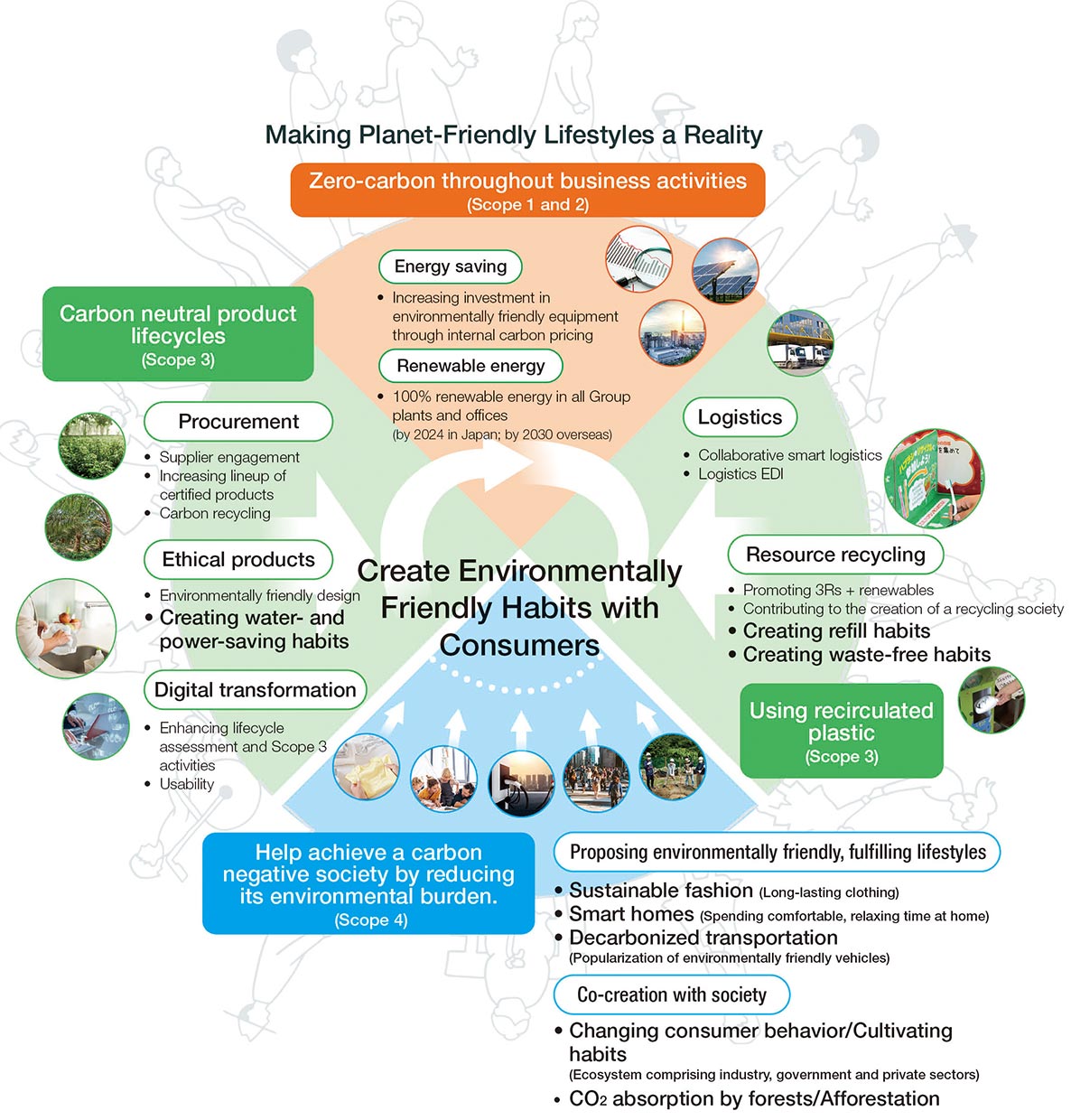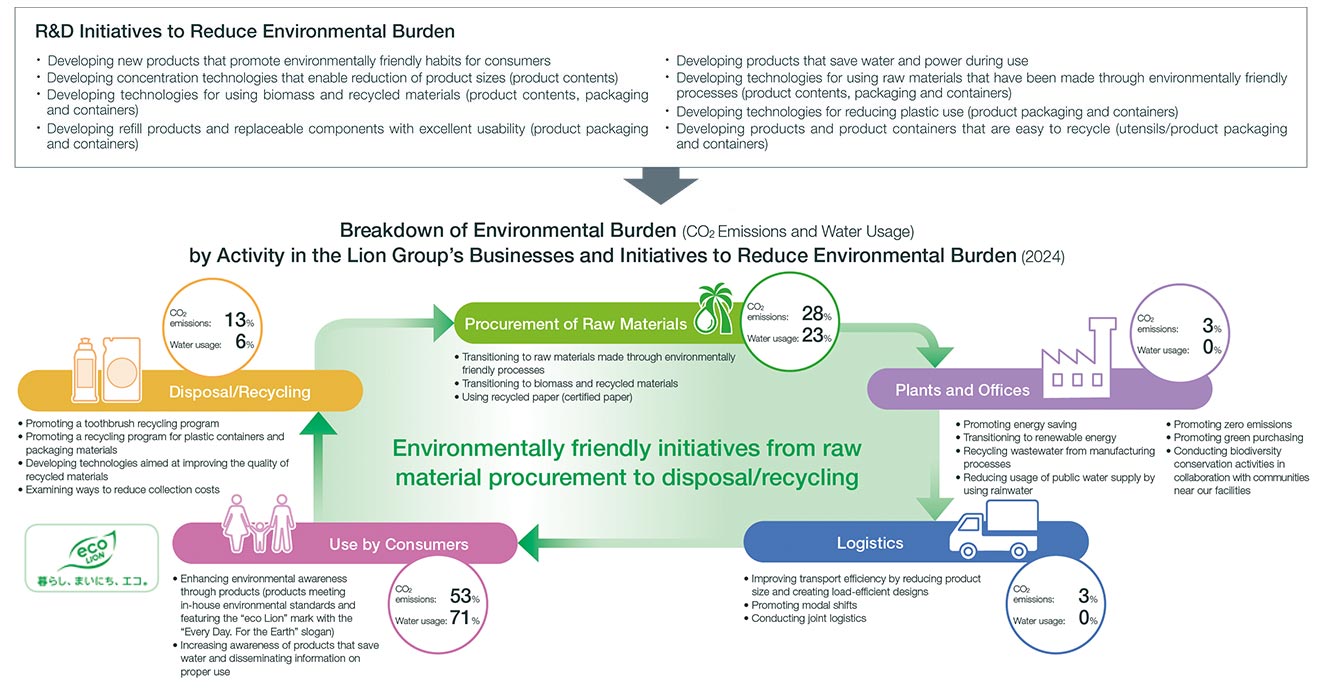We at the Lion Group strive toward our aim of “Becoming an advanced daily healthcare company,”while providing excellent customer experiences in the areas of health, comfort and cleanliness. We have therefore established an environmental policy based on the belief that protecting the global environment—the foundation of health and daily living—is a serious responsibility. In addition, we are working toward realizing a decarbonization and a resource-recycling society through our long-term environmental goal LION Eco Challenge 2050 and our highest priority sustainability issues for 2030, Promoting Environmental Initiatives for a Sustainable Planet.
In line with the corporate slogan, “life.love.” we have written “Lion and the Environment” to encapsulate our commitment to the environment, expressing our aim of reducing environmental burden not only through our business activities, but through our products as well, while making every day brighter for each individual.
Lion and the Environment
Making daily life more pleasant should also mean caring for the environment.
Each everyday activity can do good things for our planet.
That’s Lion’s eco-philosophy. It’s why we make environment-friendly products that fit right into your lifestyle.
For example, we use renewable plant-derived carbon-neutral ingredients.
And we help you conserve water resources with our water-saving products while protecting the water environment.
So, day by day, without even thinking about it, you help keep our planet healthy.
It’s an eco-lifestyle for everyday life.
That’s Lion's promise to you and the Earth.
In 2019, the Company established the LION Eco Challenge 2050, a set of long-term environmental objectives, with the goal of promoting business activities that help to address global problems, such as those identified in the Paris Agreement and the Sustainable Development Goals (SDGs). In 2022, many countries, including Japan, began raising their environment- and sustainability-related targets. We have also revised our objectives as we work to achieve carbon neutrality by 2050. Aiming to realize a decarbonized, resource-circulating society, we will promote environmentally friendly habits with consumers to continuously provide planet-friendly lifestyles that make more sustainable living easy.



| Objectives (2030) | Indicators (2030) | Progress (2024 Results) |
|---|---|---|
| Reduce CO2 emissions throughout business activities. |
|
|
| Reduce CO2 emissions throughout product lifecycles. |
|
|
| Achieve a CO2 emissions reduction effect in excess of Lion’s own emissions to help society become carbon negative. |
|
|
| Actively promote the 3Rs (reduce, reuse, recycle) and renewable resource activities. |
|
|
| Reduce water usage throughout product lifecycles |
|
|
As part of its responsibility as a producer, the Lion Group is working to achieve decarbonization and to solve plastic and water resource issues in every stage of the product life cycle, from the procurement of raw materials to use by consumers, disposal and recycling. As laundry and other housework requires electricity and water, CO₂ emissions and water usage are at their highest at the stage when consumers use our products. Going forward, we will work to reduce the environmental burden of our products at this stage through the provision of environmentally friendly products and services and the creation of environmentally friendly habits for consumers.


Environmental Policy / Management

Participation in External Environmental Initiatives

Realizing a Decarbonized Society

Realizing a Resource-Circulating Society

Lion’s Environmentally Friendly Products

Harmonizing with Nature (Biodiversity)

Environmental Communication

Management of Chemical Substances

Environmentally Friendly Technologies in the Chemicals Business